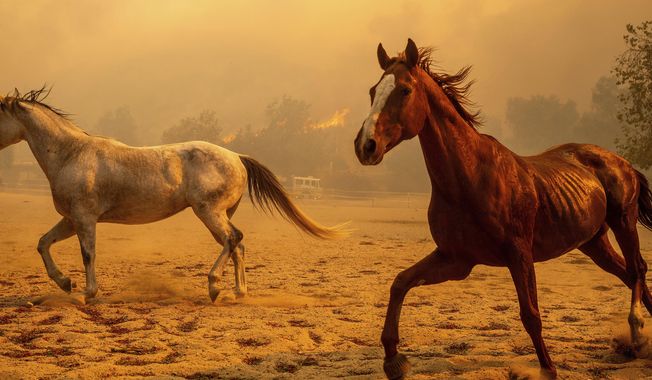
The Finnish icebreaker MSV Nordica sails through sea ice floating on the Beaufort Sea off the coast of Alaska while traversing the Arctic's Northwest Passage, Sunday, July 16, 2017. Because of global warming, more sea ice is being lost each summer than is being replenished in winters. Less sea ice coverage also means that less sunlight will be reflected off the surface of the ocean in a process known as the albedo effect. The oceans will absorb more heat, further fueling global warming. (AP Photo/David Goldman)
Featured Photo Galleries














